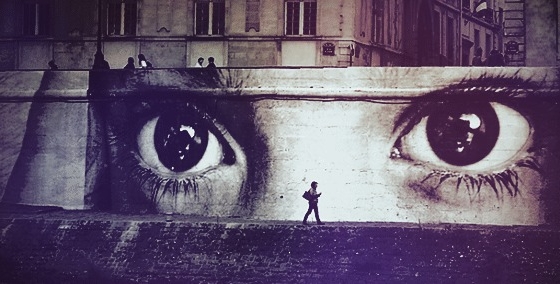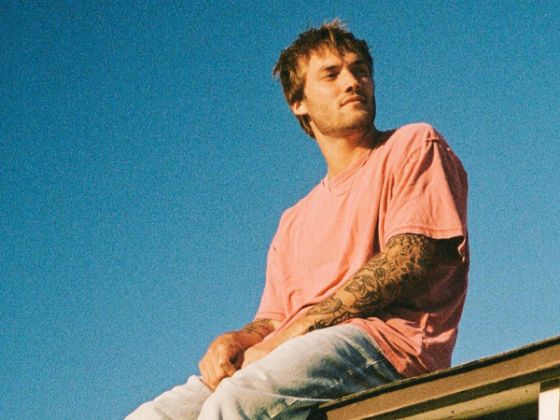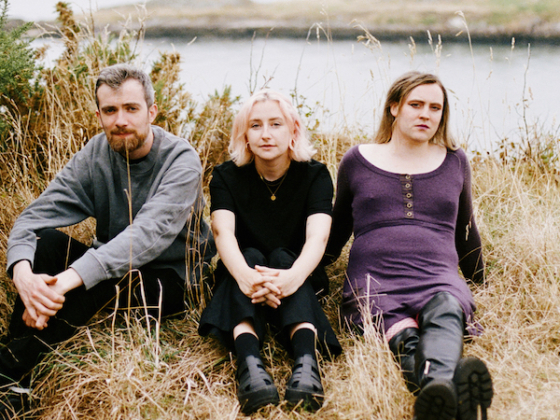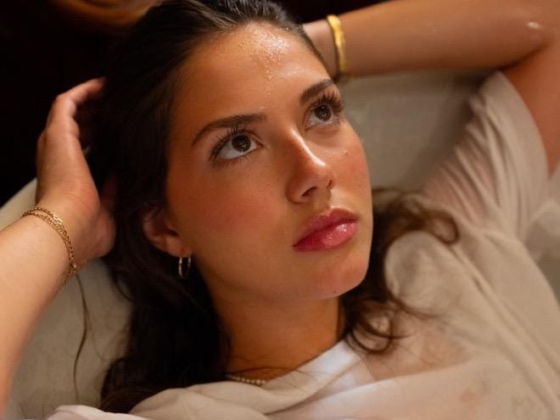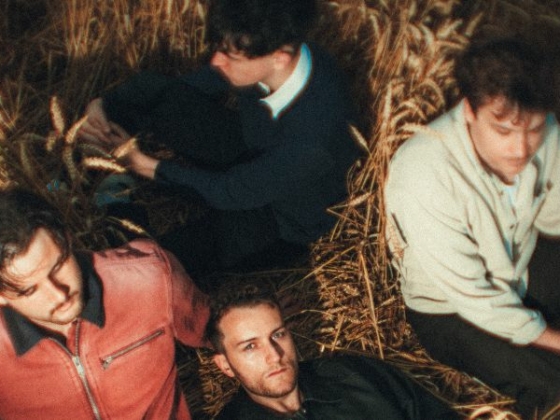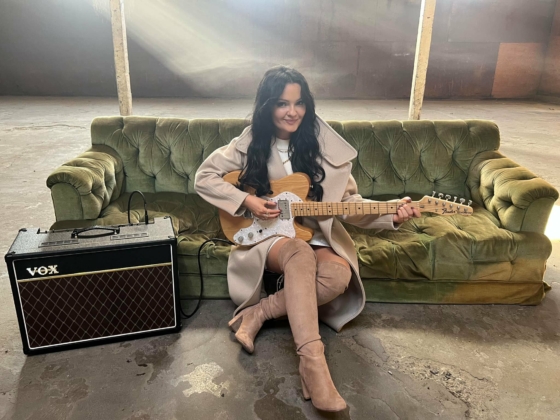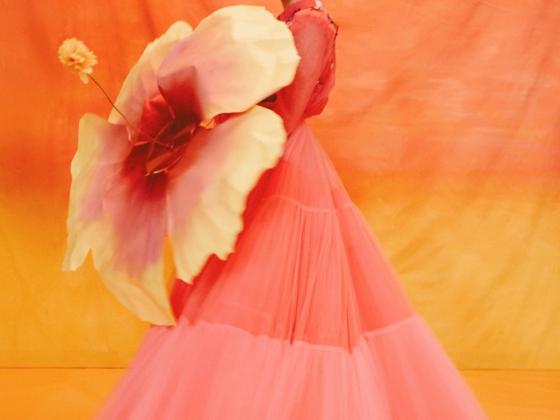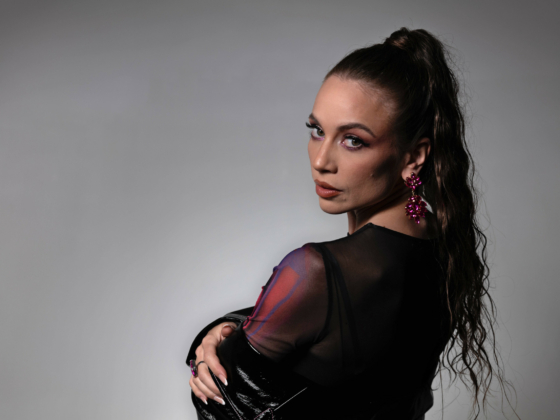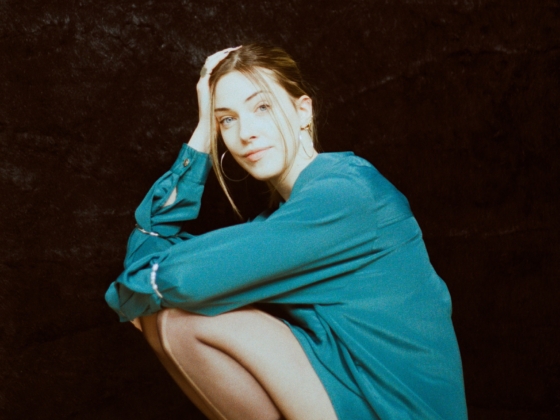
Last Sunday, the self-proclaimed "shy" Frenchman known as Anthony Gonzalez made a transformation from humble interviewee to total rockstar in a matter of hours. I'd describe myself as a casual M83 fan – while the name has floated around in my repertoire since it appeared on Bloc Party's remix album that I listened to before I even really understood what a remix was (the high school indie days), I haven't necessarily given their albums the attention they fully deserve, though I've listened to each a few times.
My interest was deepened when I heard the band's "Couleurs" placed amongst garage-y dance music in Switch & Sinden's 2008 FabricLive.43 as my interest shifted into the electronic dance music realm, paired with my affection for old-school shoegaze, and from that point, I think I better understood the diversity of M83's work and its basically-universal appeal that was reflected in the show's crowd — I spotted indie kids, I spotted people whose faces I recognized from local dance nights, I spotted people of just about every age group and demographic.
The House of Blues in Boston often plays host to shows where the crowd is dancing hard, pressed against the stage, and M83's more laid back (but certainly rocking) presence was a refreshing change of pace. They mostly played songs off of their new double album, Hurry Up, We're Dreaming, but also revisited old classic tracks, all accompanied by an atmospheric, entrancing visual setup. They closed off their encore with "Couleurs" – perfect as a danceable, poignant conclusion. The show even ended in time for a reasonable bedtime.
In the afternoon, before the show (thankfully, because I think after, I would have been far too starstruck), I paid a visit to the empty House of Blues in daylight (an odd experience) to interview Anthony. We talked about the experience of playing live shows and touring, the creative process, and his sources of inspiration, from cinema to shoegaze.

EARMILK: So I guess I'm going to start by asking you: how's this tour going, what's special about it?
Anthony Gonzalez: Uh, I don't know, everything feels very special at the moment. The response of the fans with the album, and the critiques, and the press, it's truly amazing and I really wasn't expecting that. I mean, most of the shows are sold out and really I feel like something is different, you know, compared to the last album. The atmosphere during the live shows is different, the way the people and crowd reacts to the songs is way more intense than before. It's weird, I don't even realize what's going on right now, but I'm just super happy because, you know, when everything is going well for an artist, it's like, the best, and I feel like the happiest guy on the planet right now.
EM: Awesome. So for this new album, what would you say makes this one different from the past ones?
AG: I don't know, I feel like I really tried to build my career really slowly, it started very low, and then, little by little, I stepped up every time, and I feel like it's still happening for this album. It's still a step bigger than the previous album. And it feels great. I'm really lucky to have this kind of career, where it's slow-paced but at least it's less dangerous, I'm kind of building my fanbase very slowly but it's more secure, I feel like.
So, yeah, this album I feel is not very different from the others, the way I'm composing my albums is always the same. I never really change that. So, no, it's like, I just feel great, that's all. And I feel great about this album, kind of proud of it, but in the meantime, I feel like it's still so fresh in my mind that it's still hard for me to talk about it, because I'm not really objective while talking about it. But I feel like this is one of my favorite albums, and I'm really excited to play it live and tour the world and connect with my fans.
EM: When you start an album, what's your creative process from start to finish?
It's hard to say, but it depends. I like to take my time, obviously – I mean, I'm not the kind of artist that will release an album every year. I don't like to do that. First of all because I compose very little music on the road. So when you release an album, then you tour for at least one year, it's almost one year without making any music. So yeah, when I start to compose the making of the album, I like to be in a nice environment, my own studio, with no one around, and I like to start like this for three, four months. Try to compose as many tracks as possible, like demos, and try to experiment, like, with all the tools in my studio, and then I like to have someone like a producer involved and start sharing ideas, and then go to a bigger studio and start recording drums and real instruments. I'm pretty much good doing all the synthesizers and rhythms and electronic drums by myself, but I still like the help of producers and sound engineers for drums and guitars and stuff. And I love to do that, I love to go to proper recording studios and do it the old-fashioned way.
EM: Yeah, it's really cool, the blend of a more instrumental shoegaze feel and and then the electronic thing. So I wanted to ask, from those two separate worlds, who are your biggest idols or influences?
AG: In between electronic and kind of rock?
EM: Yeah, like starting with your favorites artists from the shoegaze movement, maybe?
AG: Well, shoegaze, it's really easy. Slowdive [EM: aahh, my favorite!] is by far my favorite as well, just like, I'm obsessed with this band, and I love My Bloody Valentine, but Slowdive for me is my first love. And the electronic side is definitely some of the chairman bands from the 70s; mainly Ash Ra Temple and Popol Vuh as well, and I discovered German electronic music from the 70s, like all the krautrock movement, when I was very young actually, I was ten or eleven. Because my older brother is four years older, so he introduced me to this kind of music. And I felt very lucky to discover this kind of music at a very young age. So this movement is obviously a huge inspiration for me, and a big influence for me.
Download: Slowdive – Spanish Air
EM: Yeah, since I'm from Earmilk – which has a big following of people who keep up with current electronic music – so as far as current electronic artists, is there anything that you're following?
AG: It's hard for me to say, like, electronic, because I feel like nowadays, a lot of bands are embracing electronic music but also mix it with guitars and real drums. Electronic music, I don't know, I love the I Break Horses album, which I think can be considered as electronic, for me.
EM: Yeah, it's definitely sort of like, no genre boundaries anymore.
AG: Exactly, yeah. It's almost no separation anymore between rock music and electronic. It's more like a mix of everything.
EM: Do you feel like traveling around the world has influenced your music at all, since you're touring a lot?
AG: I wouldn't say influenced me, but inspired me, for sure. And yeah, traveling is definitely – I never take pictures but I always take pictures with my brain, and I like to remember stuff, like objects, like pictures, photos. But yeah, for sure, I love to take some notes, and when I'm in a city I don't know, I like to drive around and walk around, or bring my skateboard and skateboard around, and listen to music, and it's very inspiring. It's definitely something I like to do, traveling. It's a great part of my life, I think.
EM: Are there any cities that you always make sure you end up going to on tour? Favorite cities?
AG: Yeah, there's tons of cities I'm in love with. Tokyo is definitely one of them. Spain – Barcelona, I love that city so much. I love Australia as well. I love a lot of cities in America as well – of course L.A., I moved there one year and a half ago and I fell in love with L.A. the first time I went there. And I love New York as well. It's hard for me to think of a place I don't like, you know. When you're traveling and you're not familiar with the surroundings, it's difficult for me to find something I don't really like about it. There's always something that catches your attention or something, you know?
EM: Have you gotten to explore Boston at all? I've got to ask that, as a Bostonian.
AG: No, not really. The sad thing about being on tour and making music in a different city every day is that you don't have time to visit, really, unless you have a day off somewhere. Most of the cities I told you about, like Tokyo, Sidney, Melbourne, New York, Los Angeles, it's cool because when we play there we usually take one or two days off to have time to visit and to kind of drown into the atmosphere of the city.
EM: You've been touring at festivals lately, too. How is that different for you from playing at smaller venues like clubs?
AG: I don't know – festivals can definitely be a weird experience, very strange, it's like, you're playing in front of a massive audience, and maybe like, 70 percent of the crowd has never heard of you, you know, they're there by curiosity, or just because they want to check it out. And it's not easy, because first of all, you never soundcheck. You have to be very fast, and most of the time, you end up having tons of technical issues, of course. And you're playing at like, 5 or 6 in the afternoon, so it's still very bright, with a lot of light, and my music needs atmosphere, we need lights, we need a dark room and very strange and weird atmospheres, like smoke, and you don't have that in festivals unless you're like, Coldplay or Radiohead, you know, and you have a good spot at night on a good stage. So, for now my experience with festivals is 50/50. Sometimes, it can be rough, but rock-and-roll, and I can really enjoy myself, but sometimes it can be really tough, and I don't really like it at all. It's really 50/50.
EM: And how is it playing, even in club-like venues – I know in Boston, you were initially booked at the Paradise, which is kind of smaller, but House of Blues is a lot bigger – do you find it different playing in bigger club venues also?
AG: It's, yeah, I feel like there's a difference between the last tour, obviously, I mean, we're playing way bigger venues than before, and it's like, I feel, like I said before, I don't even realize, it's like, I feel weird, I feel like I'm not, this is not my spot, I don't belong here, it's almost too big for me. It feels weird – I'm a very, very shy person, and now, playing in front of bigger crowds and audiences, it's just like, of course very rewarding and satisfying, but it's all like [shudders] it's too big for me, almost. And I'm almost like, ashamed to be here because I feel like I don't deserve it. But sometimes I feel like, I've been doing this for more than ten years and maybe I do deserve it, after all. Sometimes you feel confident about it, and sometimes you feel like, mm, it's just too big. So it depends.
EM: So you were mentioning the visual atmosphere of your live shows – do you personally have a lot to do with how that turns out?
AG: Like the lights and stuff? Yeah, I love to be involved in all the visual stuff, like album covers, videos, light shows. It's very important to me. So yeah, I'm obviously very influenced by cinema, and so I feel like for that reason, visuals are almost as important as the music for me. And when I was a teenager, I was – sometimes it's stupid to say that, but if I was going to the record store and I found a great album cover, if I liked the cover and the design and the photo, I would buy this album and try it out. I discovered tons of bands like this. And I feel like it's important in music that you have a good visual reference.
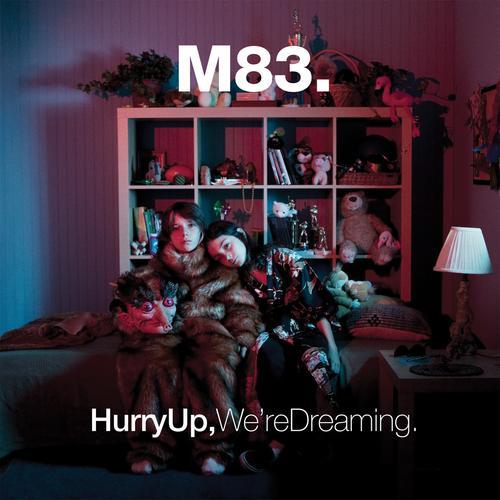
EM: What's the story behind the album cover for the latest album?
AG: I don't know – we wanted to do something kind of intimate, because the album is very ambitious and big-sounding, and we wanted somehow for the cover to be kind of less ambitious, almost, and more mysterious and something very minimal and simple. Just a beautiful photo, we wanted. Something like, yeah, like you don't, oh! two kids on the cover. Dark colors. And it's just like, it's kind of enigmatic, and mysterious, and we wanted this feeling for this cover.
EM: Was working on this long album a different experience from working on a shorter album?
AG: It's actually not so long compared to my previous albums – Before the Dawn, for instance, was almost the same length as the two albums put together. The idea was to do a double album, of course, but the idea was also to do something very eclectic and not too long. My biggest fear was to annoy or bore the listener. And obviously some people think it's boring or annoying, but I feel like I really tried to do my best to do something very eclectic and kind of, if you take one album, and just focus on one album, it's actually a very short album. And you don't have to listen to both of them at the same time. This is what I like about it – you can take your time and focus on the first side and then take like three days off and listen to the other side.
EM: You've done some remixes and stuff too in the past – do you have a favorite remix that you've done or is there anyone who you'd love to remix in the future?
AG: My favorite remix is, I don't know, maybe the one I did for Bloc Party. Just because it reminds me of a good period of my life, I guess. And sometimes, this is what I like about music, is that it helps you connect with your past, all of a sudden you hear and song and think about ten years back, or memories of your childhood, or your teenage years, that's what I like about music, that's why I'm doing this. And so, yeah, definitely this one, and I don't really do remixes anymore, I don't know. I'm not really into it anymore. Kind of done with it.
But yeah, I keep refusing to do it, since like, a couple years, I've maybe done one or two. I feel like I love to do different stuff, every time, I don't like to do always the same remix albums, and I would love to experiment more with my sound, and do soundtracks, for instance. And maybe do an album under another name with a different style of music. I'd love to do that. The more I feel I grow up, the more I'm open-minded with other kinds of music and the more I want to achieve different stuff in my life.
EM: As far as cinema, what kinds of movies do you like? Since you said that that's something that's influenced or inspired you.
AG: I don't know, it's hard for me to give you an answer because I watch tons of movies and it can be like a fucking B movie from the 80s, or like, a new comedy, a stupid comedy, or a very cerebral movie, but my favorite directors are probably Terrence Malick, Gus Van Sant, David Lynch as well, Kagahaki, Torrance (Note: I wasn't sure about the last two while transcribing, so feel free to shed some light in the comments!). So, yeah. But for this album, Days of Heaven from Terrence Malick, I was watching this movie pretty much every month during the making of this album. And [???] with Klaus Kinski was also a big influence. So old movies.
EM: Cool. What kind of things, after you're finished with this tour, what do you think is coming up for you?
AG: I'd love to make soundtracks one day. My dream will be to, like, I don't know, do this kind of like, album-touring thing. Until I'm like forty, then I stop touring and focus on making soundtracks.
EM: Is there anything else on your mind?
No, just excited to play tonight in front of this huge audience. It's going to be so intimidating and I'm going to feel very little, but hopefully the energy is going to be there.


